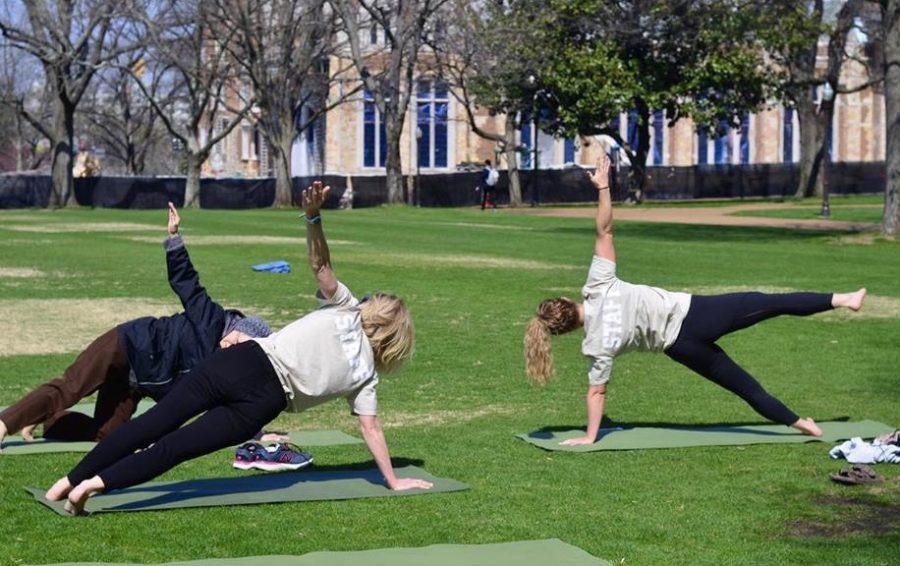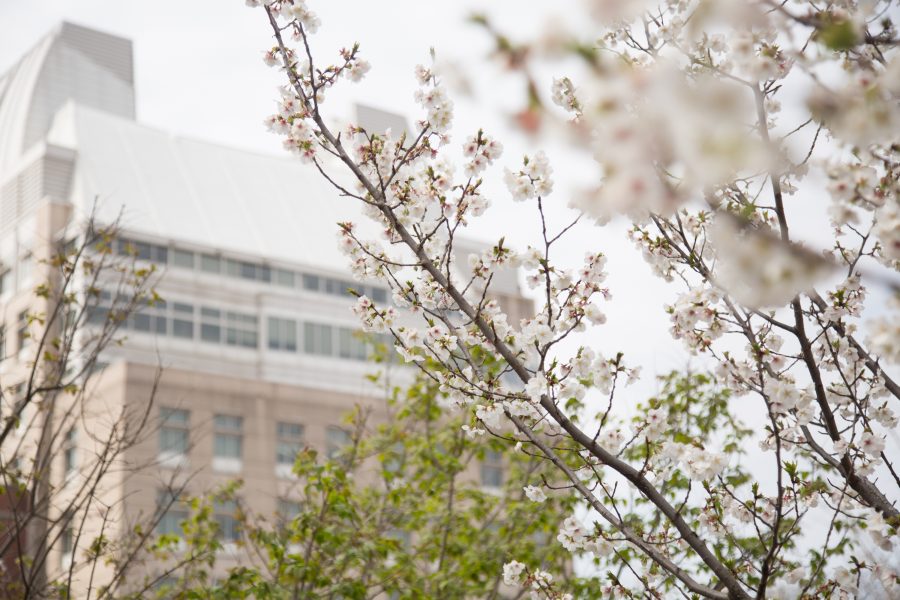The hardest part of being a runner is impact.
The simple act of moving your body can cause significant stress to the musculoskeletal system, no matter how slow or short you run. The repetitive pounding of your shins, hips and calves can take a significant toll on your body; overuse injuries are often brewing long before they show up as physical discomfort.
Runners with “perfectionistic tendencies” are 17 times more likely to get injured. There’s a fine line in endurance sports between achieving your maximum fitness potential and going overboard. The idea of acknowledging your limits is blurry for those who want to push themselves harder, run faster and do the most. Perfectionism is a proxy for stereotypical athletic ambition: intense, committed, driven and likely to ignore warning signs.
That’s why my heart sank when the front of my shin bone erupted into stabbing pain on a long run over winter break. It was easier to pretend I didn’t know what was going on. In typical high-functioning Vanderbilt fashion, I didn’t want to feel weak and kept going. I dismissed the pain as a small hurdle, promising myself I would stretch or spend the afternoon on the couch resting. I sought a “quick fix” to my problem, ignoring the glaringly obvious message: slow down.
Every Vanderbilt student can relate to the “I’ll worry about it tomorrow” mindset; pushing through the pain, exhaustion and warning signs is a trait we’ve picked up from the demanding world around us. We’ve all been exposed to the idea that rank and performance matter excessively. We believe that doing the most will allow you to achieve as much or more than your peers. We believe that our lives should model the unrealistic lives of social media and advertisements. We are constantly pushing our bodies and our minds to achieve unattainable standards of perfection.
In our world, perfectionism extends beyond “doing your best work.” It extends to stretching yourself thin to be involved in “enough,” credit overloading every semester, getting a high score on the MCAT or LSAT, having a perfect body AND getting nearly blackout drunk every weekend so you’re still perceived as “fun.”
Rest—which is sometimes even more important than our toughest days—is not something we talk about. Admitting that you need a break can be seen as a sign of weakness. Competition over who is suffering the most pain or who has achieved maximum productivity is a hallmark of higher education. Pushing through an injury, exhaustion, a sick day or mental health crisis is understood as a sign of strength and grit.
After all, why would we want to let others know that we’re not perfect?
The danger of glamorizing productivity
I know I’m not the only one who has noticed a tipping of our work-life balance during the pandemic towards work instead of life. There is little reprieve from the monotony of online classes; days blur together, homework piles up and stress increases. Weekends, holidays and vacations have been no different from weekdays. Zoom allows for this; when last year we couldn’t schedule meetings during inconvenient times (like dinner or late at night), now we can because Zoom is expected to be accessible anywhere. There is often nothing better than to work—it provides a distraction from the problems that we’re facing right now. When the news is causing too much stress, we can simply switch to doing homework—which somehow feels more productive anyway.
The cadre of internet motivational videos and Netflix top hits provides no reassurance for the hard working college student. “Grey’s Anatomy” teaches pre-med students that their futures will be full of simultaneous 48-hour shifts with little personal gratification. “Law and Order” and “How to Get Away With Murder” create a narrative that the legal profession is filled with fast-paced drama and constant high-stakes cases. YouTube and TikTok videos are filled with endless motivational content. It often seems like everyone on your “For You” page is healthier, more productive, happier and more successful than you.
These videos provide quick relief to the problems we face every day; we watch them for entertainment rather than their life-changing abilities. The correct version of our future includes a lot of difficulties, getting back on track, perseverance and completing small, relatively inglorious tasks.
What we often forget is that a heap of small, inglorious, imperfect tasks pieced together looks like glorious success from far away.
Ignoring pain signals
Pain is a protective signal. When you feel pain, your brain is alerting you to the fact that something may be wrong. It’s already done things like shut down nervous system function to the area to protect you from hurting yourself further. Our bodies and brains will tell you without a hint of hesitation that “pushing through the pain” isn’t the best plan. So why don’t we start listening?
We shame ourselves in our internal conversation no-one else can hear. We tell ourselves that our emotions are stupid or inappropriate instead of allowing ourselves to feel. We define ourselves as failures in a false test where there is no grade. We justify our unhealthy working habits as simply being part of the “grind.” We push ourselves closer and closer to burnout.
I will be the first to acknowledge that taking time off is not easy. I still struggle to let go of the fear that because I’m taking a break, I am less worthy as a person. I have had to readjust my perspective; my injury has made my dream of running a marathon this April an impossible goal. I have had to readjust my goals to celebrate the little milestones, like walking a mile or a pain-free night.
Ask any of your athlete friends; they know that rest after exercise is essential to high-level performance, but many still feel guilty when they take a day off. The time between workouts is when the body does the work of repairing and strengthening itself. Continuous training can weaken even the strongest athletes. Taking a day off will ultimately make our performance better. We become better athletes, better students and better people when we care for ourselves too.
Rest days are for healing and reflection. Rest days are for allowing yourself to become a better, stronger individual. They allow us to remember that even though we want to use every second of our time, our bodies don’t operate that way. Rest days are about giving your painful calves, fuzzy brain or exhausted heart a chance to heal. Our bodies are already doing the work to heal us every day.
And how cool is that?















